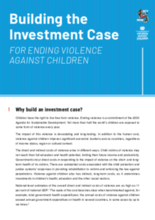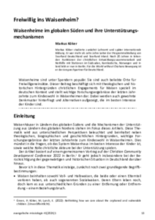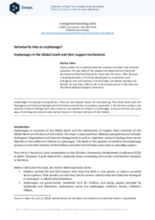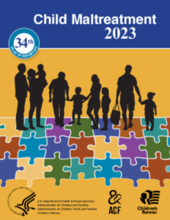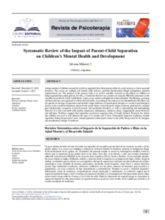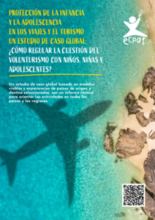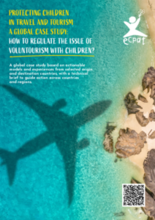Displaying 161 - 170 of 4431
This advocacy brief and video are underpinned by research confirming the high costs of violence against children to society, and the significant returns that could accrue from investments made in interventions to prevent and respond to violence against children. The research highlights the need for a paradigm shift, from viewing expenditure on the protection of children from violence as a cost to viewing it as an investment.
SOS Children's Villages' Global Report on Children’s Care and Protection 2024 sheds light on the dynamics of child-family separation. This document can be used to call on governments and decision-makers to act to strengthen families and improve care and support systems.
Catherine Russell, UNICEF Executive Director, writes that the outlook for children in 2025 does not look good as children face conflicts, climate-related disasters, economic instability and a growing digital divide – all of which are threatening their lives, development and well-being.
Dieser Beitrag beschäftigt sich mit theologischen und historischen Hintergründen christlichen Engagements für Waisen speziell im deutschen Kontext und stellt wichtige Forschungsergebnisse der letzten Jahrzehnte zum Kindeswohl in Waisenheimen dar. Dabei werden auch gewohnten Denkmuster hinterfragt und Alternativen aufgezeigt, die im besten Interesse der Kinder sind.
This article, by Markus Köker, examines the theological, historical, and practical dimensions of Christian involvement in orphanages, particularly focusing on institutions in the Global South and the support they receive from the Global North. Köker traces how good intentions, religious motivations, and volunteer tourism have sustained orphanage systems that often harm children’s development and perpetuate family separation.
Child Maltreatment 2023 (the report) is the latest edition of the annual Child Maltreatment report series. The report is used by researchers, practitioners, and advocates throughout the world as a source for national child welfare data. Jurisdictions provide the data for this report via the National Child Abuse and Neglect Data System (NCANDS). NCANDS was established as a voluntary, national data collection and analysis program to make available state child abuse and neglect information. Since 1991, child welfare agencies in the 50 states, the Commonwealth of Puerto Rico, and the District of Columbia have collected and submitted data for NCANDS.
This systematic review of open-access research examined the effects of parental separation on children, identifying a wide range of adverse outcomes including neurological changes, trauma, abuse, poor academic performance, mental health disorders, and risky behaviors. The risk is highest between ages 9 months and 9 years, particularly when separation is abrupt, occurs in preschool years, involves care by strangers, or coincides with a change of residence.
This report examines the global sexual abuse and exploitation of care leavers, highlighting how systemic failures, both within institutions and during the transition to independence, leave young people vulnerable to harm, including cross-border trafficking and online exploitation. It calls for urgent action to strengthen safeguarding, ensure comprehensive aftercare, and create survivor-centered justice systems to protect care leavers’ rights, dignity, and long-term wellbeing.
Este estudio de caso sobre cómo regular el volunturismo que involucra a niñas, niños y adolescentes se basa en el análisis de modelos viables resultantes de las experiencias de los países de origen y destino seleccionados que emprendieron iniciativas para abordar esta cuestión en los últimos años.
This case study on how to regulate voluntourism that involves children is based on the analysis of actionable models resulting from the experiences of the selected origin and destination countries that undertook efforts to address this issue over the last years.

